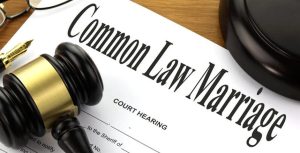Table of Contents
- Introduction to Probate and Estate Planning
- Key Concepts of the Probate Process
- Common Misconceptions About Probate
- Strategies to Simplify Probate
- Legal Documents Involved in Probate
- How Probate Varies Across Different Jurisdictions
- Practical Steps for a Smoother Probate Experience
- The Future of Probate and Estate Planning
Introduction to Probate and Estate Planning
Probate is crucial to estate planning, validating wills, and managing asset distribution. It’s a formal court process that provides clear directives for a deceased’s estate. Understanding probate helps anticipate potential challenges and create stress-reducing plans. It ensures debts and taxes are paid and assets are distributed appropriately, making it a cornerstone of estate planning. When it comes to estate planning, understanding the nuances of probate law services Louisville KY can make a significant difference. Probate is a legal process that ensures the deceased’s wishes are respected, and assets are distributed according to their will or state law. It is crucial for estate planning and managing a loved one’s affairs. Understanding probate’s role in estate planning helps individuals make informed decisions, avoid legal obstacles, and facilitate a smoother transition for all family members.
Key Concepts of the Probate Process
The probate process involves several significant components that are crucial for estate management. First, the court must authenticate the deceased person’s will. Then, an executor or personal representative is appointed, responsible for navigating estate affairs, including settling outstanding debts and taxes before distributing assets to the rightful heirs. For those aiming to start their journey in understanding probate comprehensively, the in-depth guide on probate law provided by Nolo offers substantial insights.
Common Misconceptions About Probate
Many people have many misconceptions about probate, often viewing it as an unnecessary complication or a costly legal procedure. However, probate offers legal protection to estates and beneficiaries, preventing potential disputes among heirs. One frequent misconception is that probate constantly depletes the estate through fees and taxes, which isn’t always true. Understanding the process and its requirements helps dispel these myths, leading to better estate planning decisions and reducing unwarranted fears.
Strategies to Simplify Probate
Strategic planning can simplify the probate process. Updating all pertinent legal documents to reflect accurate asset distribution preferences is crucial. Selecting a reliable executor familiar with the estate’s details can also help ease the entire process. Furthermore, utilizing legal tools such as living trusts and setting up pay-on-death accounts can provide avenues to sidestep probate, streamlining asset transfer and reducing administrative burdens posthumously.
Legal Documents Involved in Probate
The probate process necessitates several critical legal documents, each serving a pivotal role:
- Last will: Central to expressing the deceased’s wishes regarding asset distribution and guardianship mandates.
- Death Certificate: A vital document confirming the individual’s death, necessary for initiating probate.
- Probate Application: Typically filed by the executor seeking the legal authority to manage the estate’s affairs.
- Inventory of Assets: A detailed account of the estate’s assets, vital for transparency and proper distribution.
How Probate Varies Across Different Jurisdictions
Probate laws and processes can vary considerably from jurisdiction to jurisdiction, influencing how estate matters are resolved judicially. Certain states may offer expedited procedures for smaller estates, while others may impose more stringent legal requirements. Understanding these jurisdictional variances is crucial, especially for individuals with assets across multiple locations. For those seeking a broader perspective, exploring resources like a recent article from The New York Times can provide valuable insights into how probate functions across different regions.
Practical Steps for a Smoother Probate Experience
Ensuring a seamless probate experience involves several practical steps:
- Organize Essential Documents: Keeping all legal documents secure and organized becomes paramount.
- Choose a Reliable Executor: The executor should be trusted and well-versed in managing financial and legal matters.
- Communicate with Heirs: Maintaining open communication with all potential heirs helps prevent misunderstandings and potential disputes.
- Assess and Inventory Assets: Compile a comprehensive inventory of assets to ensure a transparent distribution process.
- Consult with Legal Experts: Engaging with experienced legal professionals can provide guidance and mitigate issues before they arise.
The Future of Probate and Estate Planning
The landscape of probate and estate planning is evolving, particularly with technological advancements. Digital solutions enable more efficient document management, archival processes, and communications, streamlining the probate process for all parties involved. With society’s increasing reliance on digital tools, these innovations will likely make probate more accessible, less burdensome, and align more closely with modern estate planning needs. As technology continues to converge with legal processes, the future promises enhanced efficiency, ensuring estates are managed respectfully and effectively, thus honoring the wishes of those who have passed.




